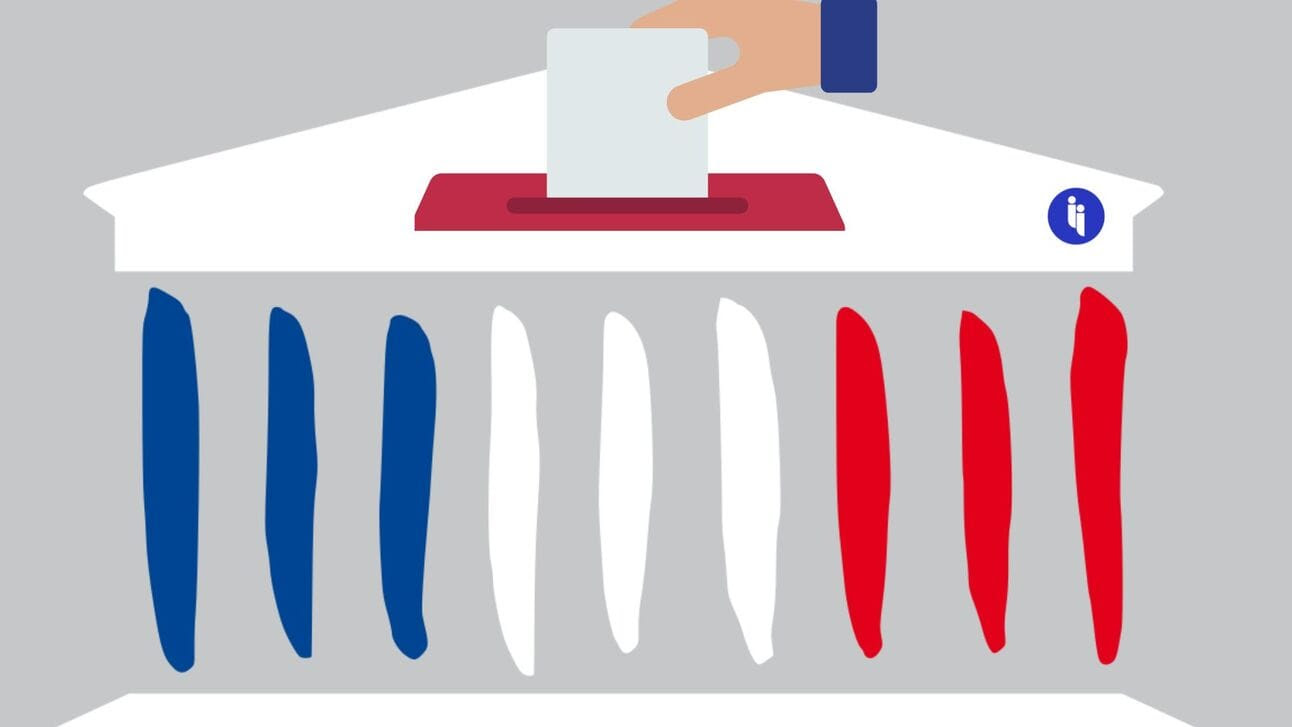Just as the European Parliament was wrapping up its elections Sunday night, French President Emmanuel Macron nudged his way back into the spotlight by announcing France will now also elect a new legislature. In just 18 days from now!
You might’ve noticed some headlines declaring that “the far right has surged” in Europe’s parliamentary elections, followed by a footnote clarifying that, okay, the pro-EU centre still has a 56% majority in Brussels (down from 59%).
As ever, the truth is nuanced, so here’s what you need to know.
Stay on top of your world from inside your inbox.
Subscribe for free today and receive way much more insights.
Trusted by 114,000+ subscribers
No spam. No noise. Unsubscribe any time.
First, remember that these elections spanned 27 countries and 380 million eligible voters. Several populist, nationalist, eurosceptic, and hard right parties were polling strongly, though the actual results have been mixed:
- Green parties made gains in the Nordic countries
- Centrists held strong in Portugal and Spain, and
- Nationalists / populists / the hard-right made gains in France and Germany, plus also Austria, Cyprus, Greece, the Netherlands.
Zooming in a little, France’s National Rally (RN) more than doubled the vote of Macron’s centrist alliance, while the Alternative for Germany (AfD) came second, winning 16% (up 5% from last election).
Second, remember that European Parliament elections…
- Have lower turnout
- Don’t change national governments
- Are therefore treated ‘experimentally’ by many voters, and therefore
- Often reflect a higher proportion of protest votes.
So in that context, you could interpret Macron’s decision to call snap national elections as both a)heeding the voters’ call, and b) daring them to do it again (this time much closer to home). His statement said as much:
- “At the end of the day I couldn’t just pretend nothing happened”
- “So I’m again giving you the choice of our parliamentary future”, and
- “The rise of nationalists and demagogues is a danger for our nation”
He’ll hope higher turnout at home (typically 20% more than for European Parliament elections) will dilute some of the weekend’s anger.
Third, remember that this snap election doesn’t spell the end of Macron. Even if he thinks a two-term limit is “damnable bullsh¡t”, his time in the Élysée doesn’t wrap until 2027. And his party already lost its majority in Paris two years ago, forcing him to rely on ad-hoc deal-making to pass legislation ever since.
So what’s really at stake is whether the opposition now wins enough seats to re-shape or end that deal-making. The numbers could also force Macron to appoint a prime minister from another party, an arrangement known as ‘cohabitation’, which feels like the premise and title of a 1990s buddy comedy directed by the Farrelly brothers. Technically, though, Macron can still appoint anyone he wants.
Fourth, remember that while opposition gains at home would limit Macron’s ability to move on domestic affairs, he’ll still be commander-in-chief. And he’ll still be running France’s (plus shaping Europe’s) approach to the world, though with some more sceptical voices in his ear.
Really at stake, however, is the very credibility of that approach to the world. If voters again send him a message, the world will hear it too. And other leaders will start to look over his shoulder (though they’ll do that anyway ahead of 2027).
And finally, it’s worth remembering that while Macron has his fans abroad, his disapproval ratings back home are hovering around 70%, as voters bristle at pension reforms, crime, living costs, massive Olympic spending, and beyond. So the same Parisians vowing to show their anger by (ahem) relieving themselves in the Seine river, will probably also show this same anger at the ballot box.
So keep all this in mind as the headlines hit over the weeks ahead.
INTRIGUE’S TAKE
The above is how we used to analyse elections when we worked in the foreign service: what’s happening, what’s driving it, and why it matters. Compare that with how a certain other high-profile outlet described the results instead:
- “President Emmanuel Macron of France, dealt a crushing defeat by the extreme right in European elections, dissolved the lower house of Parliament yesterday… Macron’s decision was a measure of the devastating nature of the European Parliament election results.”
(bolding is ours, obvs)
Now, you didn’t come here to see us dunk on a massive media organisation. But does that organisation’s approach not go a little further in telling us how to feel? And does it not, therefore, risk fuelling the very thing it seems to fear?
To be clear, we have zero interest in defending parties or minimising results. Rather, we have a 100% interest in respecting your intelligence. World leaders prefer that approach, and we’re building Intrigue because we’re convinced others must prefer it too.
So all that to say yes, when French voters return to the polls in 18 days, there’s a solid chance they’ll clip Macron’s wings, and French power might look different on the other side. But that’s France, and that’s democracy.
Also worth noting:
- While the (opposition) RN’s Marine Le Pen is widely expected to run for president again in 2027, the party’s leader is now Jordan Bardella, a 28-year-old with 1.2 million TikTok followers. He’s emerging as a possible prime minister if voters shift the balance in the RN’s favour.
- Senior leaders in Moscow have mocked Macron and Scholz for their EU election results, claiming the numbers reflect opposition to Europe’s support for Ukraine’s defence against Russia’s invasion.
- Macron heads to Italy for the G7 later this week. The populist party of Italy’s leader, Brothers of Italy, won the most European Parliament votes in Italy over the weekend.
- French voters will now go to the polls on June 30th, and then again for a second round on July 7th.








